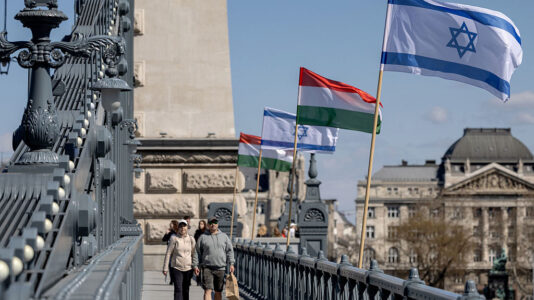Germany’s government is calling for schools to begin preparing children for the possibility of war, including a potential attack by Russia on NATO territory.
Officials warn that young people, due to their vulnerability, must be trained for crisis scenarios as part of a wider effort to boost national resilience.
The Federal Ministry of the Interior, led by Nancy Faeser (SPD), has urged schools to integrate civil protection into everyday education. “Given the current security developments, civil protection should have a stronger role in school curricula,” a ministry spokesperson told Handelsblatt.
The move follows assessments by German military and intelligence leaders, including Inspector General of the Bundeswehr Carsten Breuer, who recently told a security conference in Berlin that “Russia is capable of attacking NATO territory in four to seven years.”
CDU security spokesperson Roderich Kiesewetter told the German broadsheet that children must be better prepared for attacks and proposed crisis training to be taught in schools.
“It is imperative that the emergency is practiced because the students are particularly vulnerable and particularly affected in an emergency,” he said, pointing to Finland as a model where war preparedness has long been embedded in school life due to the country’s proximity to Russia.
“Compared to our Nordic and eastern neighbors, Germany is very little resilient and our crisis preparedness structures are backward,” said Kiesewetter, highlighting the lack of shelters, emergency stockpiles, and reliable crisis communications.
Lawmakers from across the political spectrum have expressed support. Irene Mihalic (Greens) suggested that civil defense training should not only prepare students for war but also for natural disasters like floods and forest fires. “It sharpens awareness of risks and promotes solutions to prevent crises or lessen their impact,” she noted.
Agnes Strack-Zimmermann, defense expert for the FDP, argued that such preparation is overdue. “It’s not about creating fear, but about helping young people to understand reality,” she said, welcoming efforts to raise awareness and offer practical advice for emergencies.
The move would fall in line with recent moves from Brussels, with the EU Commission drafting its “Strategy for Preparing for War-Related Crises,” outlining 30 measures to bolster defense and civilian readiness across Europe.
In addition to school-based training, the German government continues to advise citizens to maintain emergency supplies at home, Handelsblatt noted.
Households are being encouraged to stock at least 72 hours’ worth of food, water, and other essentials. Recommendations from the Federal Office of Civil Protection and Disaster Assistance (BBK) even detail a full 10-day supply list, including staples like cereals, dairy, preserved meats, and a basic emergency kit with items like identification papers, matches, and flashlights.
“Knowing what to do in an emergency helps avoid chaos,” added EU Commissioner for Crisis Management Hadja Lahbib.






